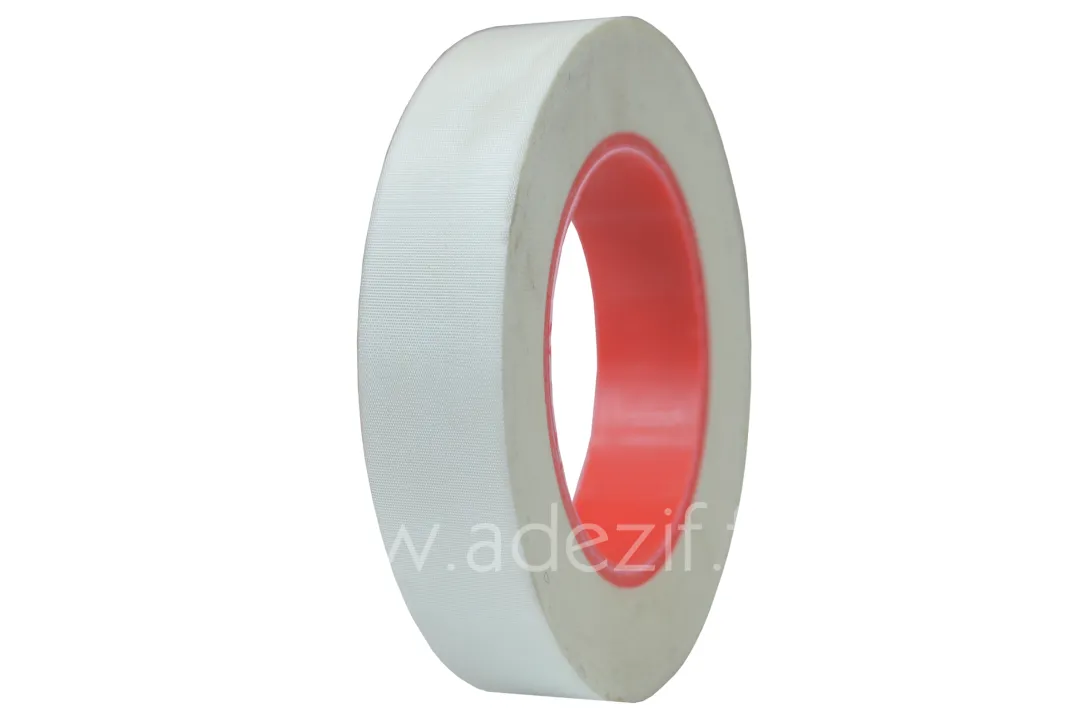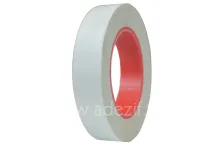Electrical insulation with adhesive tapes
- Insulation or repair of electrical cables
- Insulation during wave soldering
- Non-flame propagating
- Many colors available for cable identification
Quote
Close
You request has been sent.
We promise to respond to you in detail within 24 hours.
In the meantime, feel free to browse our other products.
What is an electrical insulation tape?
Electrical insulation tape characteristics:
- Temperature resistance: one of the dermining factors in maintaining the dielectric properties of insulators. It is on this factor that the more or less accelerated ageing of adhesive tapes depends.
5 temperatures classes have been standardized to meet the continuous operation of electrical equipment:
• Class Y : thermal stability up to 80 °C continuously, 105 °C in peak
• Class A : thermal stability up to 105 °C continuously, 130 °C in peak
• Class B : thermal stability up to 130 °C continuously, 155 °C in peak
• Class F : thermal stability up to 155 °C continuously, 175 °C in peak
• Class H : thermal stability up to 180 °C continuously, 255 °C in peak
- Dielectric strength: ability of an insulator to resist electric fields without losing its insulating capacity. The tape is then characterized by its breakdown voltage, which defines the maximum value of electric voltage that the insulator can undergo before the material becomes defective.
- Electrostatic discharge resistance: Some adhesive tapes have a low static charge which allows them to insulate and protect electronic components that are sensitive to static electricity.
- Flame retardant: Many insulating adhesive tapes meet UL150, a test method used to determine the flammability of adhesive tape. When a tape meets this standard, it is called flame retardant. Most of the time, they are also self-extinguishing, which means that they can burn in a flame but will go out as soon as they are removed.
- Choice of the adhesive mass: It depends on the desired temperature resistance. A silicone adhesive mass will be on adhesive tapes subjected to a high temperature. In electrical insulating adhesives, thermosetting rubber or silicone adhesives are used whose performance is enhanced after a high-temperature polymerization cycle.
- Conformability: an insulating adhesive tape must be able to wrap correctly around the element to be insulated, in a tight manner, without causing any brittleness of the tape or a reduction of its insulating capacity.
Their installation does not necessarily require special accessories. It is generally done manually.
Main applications of electrical insulation adhesive tapes
Adhesive tapes with the property of being electrical insulators are mainly used in the industrial field and more precisely in electronics, in the automotive field, in construction and in many other general uses.
Main applications
- Insulation, holding, fixing or electrical repair of wires and cable bundles for both indoor and outdoor use, this in complete safety.
- Thermal insulation / High temperature insulation: e.g. in wave soldering
- Shrink-wrapping of cables
- Protection of elements sensitive to electrostatic discharge
- Identification, marking: some adhesives have a wide range of colors for better identification of wires and cables. Ideal in an electrical cabinet or on long cable bundles.
Main types of electrical insulation tapes
Adezif offers many references of 3M, TESA or ADEZIF electrical insulation tapes:
Plasticized PVC electrical insulation tapes
They are mainly used for low voltage insulation in common use and also for cable identification and marking. They are also easy to tear and are much appreciated by electricians on a daily basis. They are available on our site in small (25 mm) or large (76 mm only for the reference ADEZIF AT7) mandrels. The references in flexible PVC that we offer are : ADEZIF AT7, 3M SUPER 33+, 3M TEMFLEX 1500. Available in many colors, they are part of the small tools that an electrician always needs.
Glass cloth tapes
They have an excellent mechanical resistance while remaining conformable. The products referenced on the site are of different classes, allowing you to choose the appropriate product according to the temperature of exposure of the adhesive: class B for the 3M 27, class F for the 3M 79, class H for the ADEZIF TV 569 which has the particularity to have a thermosetting silicone adhesive mass.
Kapton polyimide tapes
These are the thinnest insulating tapes, while being very strong and resistant. The references proposed by ADEZIF are of class H allowing an optimal protection for wave soldering. The 3M 5419 reference is a low static charge tape, widely used to insulate and protect integrated circuits sensitive to static electricity.
Examples of electrical insulation applications
Durable and cost-effective repair. Reduces downtime on worksites. Range of electrical insulating tapes. A solution for every type of damage.

High dielectric strength. Short-circuit protection. UL94 V0 insulating materials. Lightweight and high-performance solutions.













